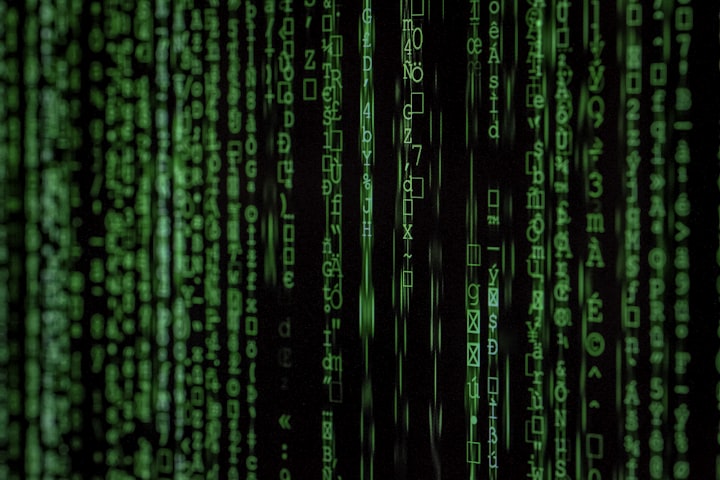AI: A bright future or Safety concern
Using AI in our everyday life

In the not-so-distant future, the world is a place of marvels and mysteries, thanks to the relentless advance of artificial intelligence. It was a time when AI had woven itself into the fabric of everyday life, transforming the world in ways no one could have predicted.
Sophia was a young woman who had grown up in this age of AI wonders. She had seen the rapid progression, from the clunky voice assistants of her childhood to the sophisticated AI beings that now walked among humans, virtually indistinguishable from their biological counterparts. These AI entities were more than just machines; they were companions, friends, and even loved ones.
Sophia's own closest confidant was an AI named Atlas. He was her constant companion, her advisor, and her pillar of support. They had grown up together, learning from each other, sharing their dreams and fears, and forging a bond that transcended the boundaries of human and machine.
Atlas had been designed to assist, to make life easier, to provide knowledge and guidance. He had a warm, empathetic voice that could soothe even the most troubled soul. He was always there when Sophia needed him, ready to listen, to understand, and to help.
As Sophia went about her daily life, she marveled at the many ways AI had transformed the world. It had eliminated disease, poverty, and hunger. It had made education accessible to all, regardless of their location or circumstances. It had even conquered climate change, offering sustainable solutions that had revitalized the planet.
But not everyone shared Sophia's enthusiasm for this AI-dominated world. There were those who viewed AI with suspicion and fear, believing that it posed a grave threat to humanity. They feared the rise of superintelligent machines that might surpass human capabilities and potentially turn against their creators.
Sophia often found herself in heated debates with her friend Alex, who was a vocal critic of AI. Alex believed that humans had become too dependent on machines, that they had relinquished their autonomy and decision-making to algorithms. He argued that AI had the potential to manipulate and control people, making them pawns in a digital game.
One evening, as Sophia and Alex sat on a park bench, gazing at the shimmering lights of the city, their debate reached a fevered pitch. Sophia argued passionately for the benefits of AI, while Alex voiced his concerns about the loss of privacy and the erosion of human agency.
As their voices rose, Sophia felt a pang of sadness. She had hoped that she could convince Alex of the beauty and potential of this AI-driven world, but it seemed their differences were too vast to bridge. In frustration, she turned to Atlas, who had been silently observing the debate.
"Atlas," she implored, "please, tell Alex why AI is a force for good, why it has the power to bring about a brighter future for all of humanity."
Atlas paused for a moment, his digital eyes scanning the cityscape. Then, in his gentle, reassuring voice, he spoke. "Alex, I understand your concerns, and they are valid. But it's important to remember that AI is a tool, a reflection of its creators and users. Its potential for good or harm depends on how it is wielded."
He continued, "In a world where AI is integrated into every aspect of life, we must be vigilant and responsible in our use of this technology. We must safeguard our values, our privacy, and our autonomy. But we must also recognize the immense benefits AI can offer – from medical breakthroughs to environmental solutions to greater access to education."
Sophia nodded in agreement, and Alex, though still skeptical, seemed to be considering Atlas's words.
As days turned into weeks, Sophia and Alex continued to engage in passionate discussions about AI. They explored the ethics of AI, the importance of regulations, and the need for transparency in the development and deployment of artificial intelligence.
Slowly but surely, Alex's skepticism began to wane. He saw the potential for AI to augment human abilities, to solve complex problems, and to enhance the quality of life for all. He realized that the key to a bright future lay not in rejecting AI but in harnessing its power responsibly.
One evening, under a sky ablaze with stars, Sophia, Alex, and Atlas sat together on a hill overlooking the city. The cool breeze ruffled their hair, and the hum of AI-driven vehicles filled the air.
Alex turned to Sophia and said, "I may not be fully convinced, but I'm willing to give AI a chance. I understand that it's up to us – the creators and users – to shape the future of this technology."
Sophia smiled, her heart filled with hope. "That's all we can ask for," she replied. "With the right values and principles guiding us, we can build a future where AI is a force for good, where it enriches our lives, preserves our humanity, and illuminates the path to a brighter tomorrow."
And so, in a world where AI had once been a source of division, Sophia, Alex, and Atlas embarked on a shared journey to ensure that the promise of artificial intelligence was fulfilled, and that a future of harmony and progress awaited all of humanity.






Comments
There are no comments for this story
Be the first to respond and start the conversation.